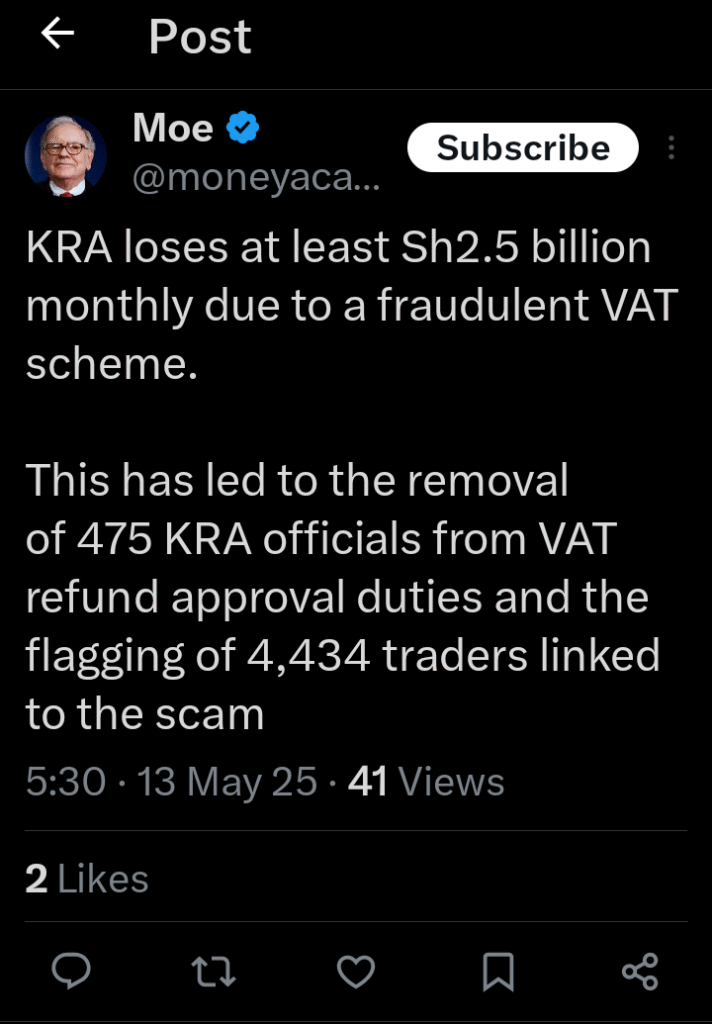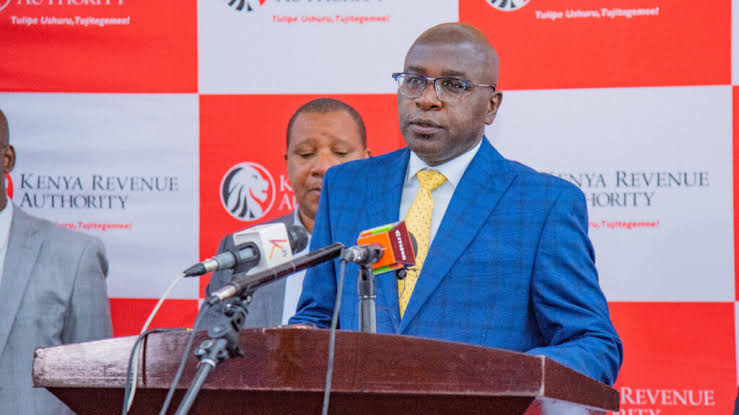The Kenya Revenue Authority is currently facing a serious problem with a fraudulent VAT scheme that could be draining the country’s public funds. According to a recent post shared by Moe, KRA is losing not less than Sh2.5 billion every month through this scam. This revelation comes as the authority continues to deal with longstanding challenges in collecting revenue and managing tax refunds.
Moe’s post also stated that 475 KRA officials have been removed from handling VAT refunds, while 4,434 traders have been flagged for their suspected involvement in the fraud.VAT, or Value Added Tax, is a type of tax added to goods and services at each stage of production. In Kenya, businesses are allowed to claim back VAT paid on their purchases, but fraud happens when companies use fake invoices to claim refunds they should not be receiving.
This method of stealing from the government has been a growing concern over the years. The scale of this scam as described by Moe suggests that the problem is deep-rooted and may involve many people within KRA and the private sector. If Sh2.5 billion is being lost every month, it adds up to over Sh30 billion every year, money that could have been used to improve public services such as health, education, and infrastructure.

The removal of 475 KRA officials suggests that this might not just be a case of oversight, but a serious failure in internal systems that may involve corruption. The flagging of more than 4,000 traders points to a widespread scam that could be well organized and hard to stop unless the government takes tough and urgent action.
If this situation is not fixed, the country could continue losing huge amounts of money, making it hard for the government to meet its financial goals. This would hurt ordinary Kenyans, especially those who depend on government services.
KRA has been trying to tighten its systems in recent years. It introduced the electronic Tax Invoice Management System (e-TIMS) to monitor business transactions more closely, but clearly, this is not enough. The recent developments shared by Moe show that the criminals behind this fraud are still one step ahead.
This should push KRA to act faster, use better technology, and work with other agencies like the Directorate of Criminal Investigations to catch those responsible. Transparency in handling this matter is also important to restore public trust and discourage others from attempting similar scams.
The Kenyan government needs to take this warning seriously. Sh2.5 billion per month is not a small amount, and the people involved must be held accountable.
The loss of such funds can cripple public services and delay the country’s development. Stronger systems, regular audits, and a complete clean-up of KRA’s refund processes might be necessary to stop these fraudsters. If KRA fails to act decisively, Kenya will continue bleeding money while a few individuals enrich themselves at the expense of the whole nation.





















Add Comment